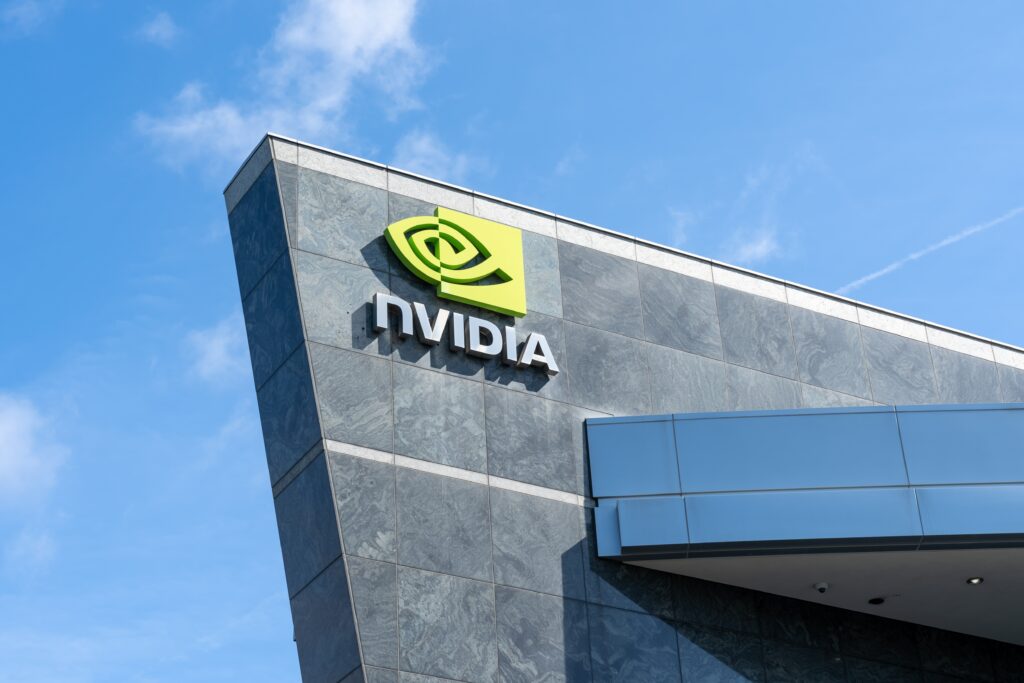Tech stocks climbed sharply on Thursday after Nvidia posted an impressive 69% jump in quarterly revenue, reaching $44 billion. The strong earnings boosted investor confidence, pushing global markets higher. Nvidia’s shares rose 6% in pre-market trading, while Nasdaq futures gained 2%. In Europe, the Stoxx Tech Index added 0.8%, and Dutch chipmaker ASML saw a 2.4% rise. Despite the upbeat numbers, Nvidia CEO Jensen Huang warned about fast-growing competition from China due to U.S. trade limits on AI chip exports.
Nvidia’s recent earnings reflect its key role in the AI chip market. Its products power data centers, cloud services, and machine learning tools worldwide. Yet, the company now faces a forecasted $8 billion revenue loss in the next quarter. This is due to a U.S. government ban on AI chip sales to China, specifically blocking Nvidia’s H20 chips from entering one of its biggest markets. The restrictions are part of a policy aimed at curbing China’s access to critical technologies.
In an interview with Bloomberg, Huang said Chinese firms are closing the gap fast. He described Huawei as “quite formidable” and added that the Chinese AI market should not be underestimated. Huang called China “the home of the world’s largest population of AI researchers” and said that the country’s companies are scaling up at a rapid pace. These developments show how quickly the global AI race is changing.
To reduce the impact of losing Chinese buyers, Nvidia is turning to new markets. The company aims to grow sales in the Middle East, where countries like the UAE and Saudi Arabia are investing heavily in digital infrastructure and smart technology. While this shift may soften the financial blow, analysts believe it won’t fully replace the demand once coming from China.
Investor sentiment also improved after a major U.S. trade court ruled against tariffs imposed during Donald Trump’s presidency. These tariffs had affected a wide range of tech products. The court’s ruling could weaken the current trade levy system, making it easier for tech firms to operate. However, the White House has filed an appeal, leaving the issue unresolved for now.
In another market-moving event, Tesla shares gained 2.6% after CEO Elon Musk announced he would leave his role in the Trump administration. Musk had been leading a group called the Department of Government Efficiency, nicknamed “Doge,” since January. The team pushed for deep cuts in government spending. His decision to step down came after Tesla’s earnings dropped and after he failed to influence the nomination of a Republican candidate to the U.S. Supreme Court.
Together, Nvidia’s strong results and Musk’s exit lifted tech stocks, giving a boost to both investor morale and market performance. While short-term gains are clear, longer-term risks still remain. Tensions between the U.S. and China, export restrictions, and political changes could all impact tech growth in the coming months.
Even so, demand for AI and chips remains high. Many industries—ranging from healthcare and banking to automotive and logistics—are investing in AI tools to stay competitive. A report by Statista predicts that the global AI market could grow from $200 billion in 2023 to over $1.8 trillion by 2030. Nvidia, as a leading chipmaker, stands to gain from this growth if it can navigate trade barriers and expand its global reach.
Analysts say Nvidia’s shift to new markets is wise. Tech expert Grace Liu noted that tapping into oil-rich, tech-hungry nations in the Middle East could help Nvidia stay on track. Another strategist, Erik Young, said Nvidia’s ability to adapt has always been one of its strongest traits.
The current rally shows how strong earnings and smart strategic moves can still drive market momentum, even when the political and trade landscape is uncertain. For investors, Nvidia’s performance is a sign that the AI wave continues to gain strength. The company’s future will depend not just on its chips, but on its ability to keep moving forward amid global change.


